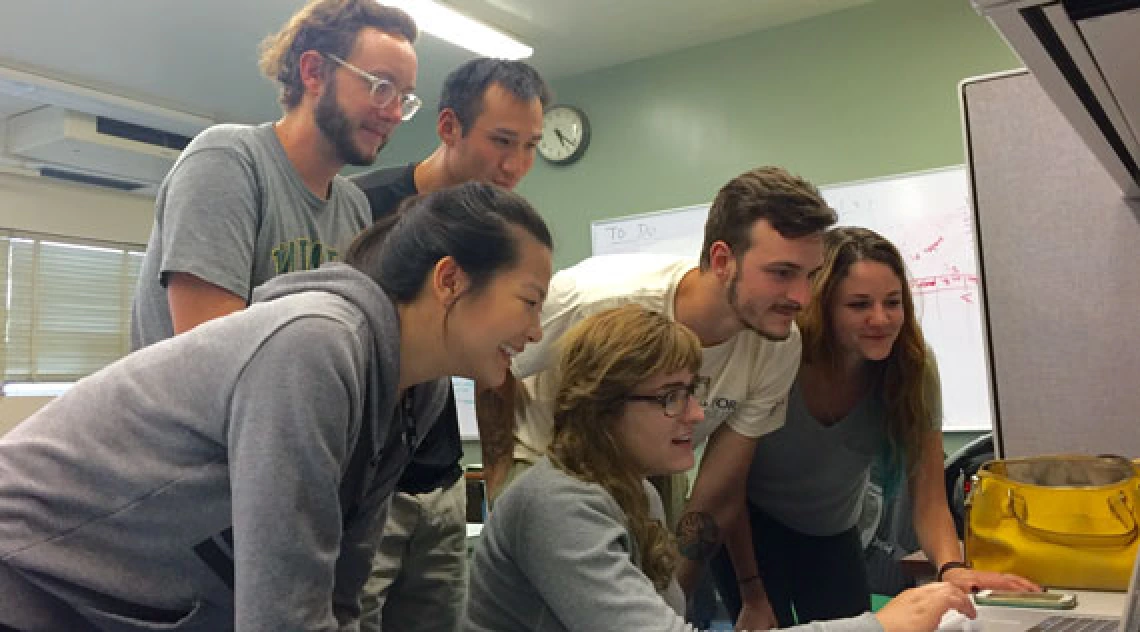Ramirez-Andreotta and Students Awarded 2016 US EPA TRI University Challenge

 University of Arizona Superfund Research Program (UA SRP) Research Translation Core Director, Dr. Mónica Ramírez-Andreotta was recently awarded a US Environmental Protection Agency (US EPA) Toxics Release Inventory (TRI) University Challenge. The US EPA TRI University Challenge is a partnership and memorandum of understanding between the University of Arizona and US EPA, Office of Pollution Prevention and Toxics (OPPT) to facilitate environmental research, education, and training opportunities. The TRI Program provides information to the public on disposal and other releases of over 650 toxic chemicals from more than 20,000 US industrial facilities.
University of Arizona Superfund Research Program (UA SRP) Research Translation Core Director, Dr. Mónica Ramírez-Andreotta was recently awarded a US Environmental Protection Agency (US EPA) Toxics Release Inventory (TRI) University Challenge. The US EPA TRI University Challenge is a partnership and memorandum of understanding between the University of Arizona and US EPA, Office of Pollution Prevention and Toxics (OPPT) to facilitate environmental research, education, and training opportunities. The TRI Program provides information to the public on disposal and other releases of over 650 toxic chemicals from more than 20,000 US industrial facilities.
This award is a team effort between Ramírez-Andreotta and her students that was developed during her course “Translating Environmental Science” taught in Spring 2015. Students taking the course were given the opportunity to prepare a US EPA TRI University Challenge proposal as a class assignment. Two graduate and seven undergraduate students were advised by Dr. Ramírez-Andreotta to prepare a project proposal. This fall 2016, five undergraduate students (Nick Agar, Joanne Mikovich, Todd Stone, Sara Swiokla, and Tori Tang) are completing this project as an independent study for academic credit and Ramirez-Andreotta was able to secure stipends for graduate students Yadi Wang and Valerisa Joe so they can help as well.
The goal of this project is to use TRI data to evaluate the potential of chemical pollution from nearby industry to impact organic farms in Arizona. The team will be collecting and combining historical weather data (Arizona Meteorological Network), pesticide licensing data (Arizona Department of Agriculture’s Office of Pest Management), and soil quality data (US Department of Agriculture’ Natural Resources Conservation Service) with US EPA TRI data. Additionally, field samples will be collected and analyzed to characterize concentrations of contaminants of concern in the participating organic farms. The team has bi-monthly calls with the US EPA OPPT and students are currently learning how to use the US EPA TRI data and online tools. According to Ramírez-Andreotta: “This project has given me the opportunity to use different learning theories such as constructivism and experiential learning to teach students about environmental health challenges and translational science. In this informal science learning experience, my students are actively learning, constructing their knowledge, rather than just acquiring it, and are being required to reflect on their research tasks.
The UA SRP congratulates Ramírez-Andreotta and her team on this award which promotes a transdisciplinary approach to the problem of pollution in the US. We look forward to reporting back on their results!

